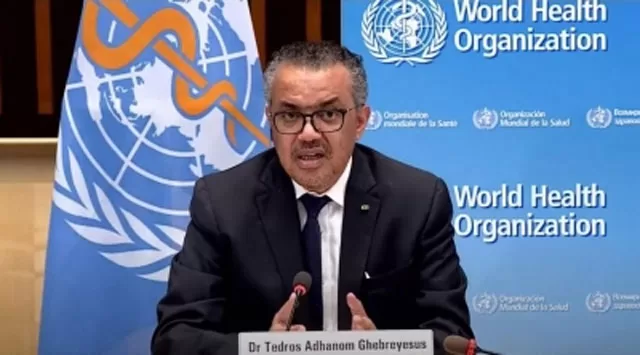Geneva — The World Health Organization (WHO) is making a last-ditch effort to persuade the United States to remain a member as Donald Trump prepares to take office as president. According to sources familiar with the matter, the WHO has compiled a detailed list of reasons highlighting the benefits of U.S. membership to both global health and American interests.
During his previous term, Trump initiated the U.S.’s withdrawal from the U.N. health agency, citing concerns over its handling of the COVID-19 pandemic and perceived favoritism toward China. With his return to the presidency, experts believe he may reinstate similar policies, potentially announcing the decision as early as his inauguration on Monday.
The U.S. is the WHO’s largest financial contributor, and its departure would deal a significant blow to the organization and global health systems. However, WHO officials stress that such a move would also harm the U.S. by isolating it during global health crises and reducing its access to critical disease surveillance systems, including those monitoring emerging pandemics like H5N1 avian flu.
Advocates Stress Risks to U.S. Interests
Prominent American health advocates have urged the WHO to outline how U.S. withdrawal could endanger the country’s national security and pharmaceutical industry. Lawrence Gostin, a professor of global health at Georgetown University and director of the WHO Collaborating Center on National and Global Health Law, called the potential exit a “grievous wound” to both global health and U.S. interests.
“It would be a deep wound to the WHO, to health globally, but an even more grievous wound to the U.S. national interest, and we are making that case as forcefully as we can,” said Gostin.
The WHO’s list emphasizes the importance of U.S. access to international flu surveillance data and its impact on pharmaceutical innovation. Advocates warn that without WHO membership, the U.S. would lose access to critical information about emerging diseases, potentially compromising its ability to respond to global health threats.
A Race Against Time
Under U.S. law, any withdrawal from the WHO requires a one-year notice period, during which health advocates and international allies hope to sway the administration’s decision. During this period, WHO supporters, including scientists, civil society groups, and former officials, plan to emphasize the strategic and economic risks of leaving.
Efforts to lobby the administration include public campaigns and potentially presenting findings directly to Trump’s transition team. Former British Prime Minister Gordon Brown, now a WHO envoy, has also advocated for continued U.S. involvement, underscoring its critical role in international health initiatives.
Legal and Diplomatic Hurdles
Health experts have raised questions about whether the president can unilaterally withdraw the U.S. from the WHO without Congressional approval. The U.S. joined the organization in 1948 following a Congressional decision, and some advocates are exploring potential legal challenges if Trump moves forward with plans to exit.
Meanwhile, Geneva-based diplomats report that the WHO has been preparing for months to counter any U.S. withdrawal. Meetings have been held to identify activities that align with U.S. interests, even under a Trump administration.
“Germs Don’t Respect Borders”
Global health experts stress that U.S. withdrawal could weaken international efforts to combat pandemics, jeopardizing global health security. “If we hollowed WHO out … that is going to come back to the U.S. Germs don’t respect borders,” warned Gostin.
The WHO has yet to comment publicly on its efforts, but insiders suggest the stakes are high, with the organization relying on U.S. funding and leadership to tackle major health crises worldwide. As Trump assumes office, the clock is ticking for advocates to prevent a decision they argue could have devastating consequences for both the U.S. and the global community.











